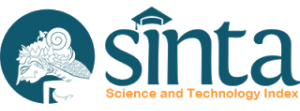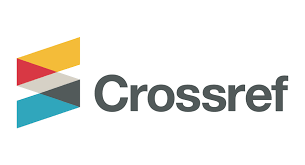Publication Ethics
Publication Ethics
Duta Pharma Journal (DJP) is committed to upholding the highest ethical standards among all parties involved in its publication process—including authors, editors, reviewers, and the publisher (Universitas Duta Bangsa Surakarta). The journal endeavors to ensure integrity, transparency, and accountability in every step of publication and to prevent any form of misconduct or conflict of interest.
As a peer-reviewed scientific journal, DJP follows the internationally recognized ethical guidelines established by the Committee on Publication Ethics (COPE). This statement describes the ethical responsibilities of all persons and institutions engaged in the publication process.
Ethical Guidelines for Journal Publication
Publishing research in Duta Pharma Journal constitutes a vital contribution to the fields of pharmacy and pharmaceutical sciences. High-quality and ethically conducted publications reflect both the credibility of the authors and the integrity of their affiliated institutions.
As publisher, Universitas Duta Bangsa Surakarta is fully committed to preserving professional and ethical standards throughout all stages of publication. Commercial considerations—such as advertising, sponsorship, or reprints—shall not affect editorial decisions. The Editorial Board also upholds transparency and ethical cooperation with other journals or publishers when appropriate.
Publication Decisions
The editors of DJP bear full responsibility for selecting manuscripts eligible for publication, based on scientific soundness, originality, clarity, and relevance to pharmaceutical sciences. Editorial decisions must adhere to the Editorial Board's policies and applicable laws concerning defamation, copyright, and plagiarism. Editors may consult reviewers or other editorial board members in making decisions.
Fair Play
Editors evaluate manuscripts solely on scholarly merit, without discrimination on the basis of gender, race, ethnicity, religion, sexual orientation, nationality, or political beliefs of the authors.
Confidentiality
All submitted manuscripts are treated as strictly confidential. Information concerning a manuscript may be disclosed only to the corresponding author, potential reviewers, editorial advisors, or the publisher, as needed.
Disclosure and Conflicts of Interest
Editors shall not use unpublished material presented in submitted manuscripts for their own research without written permission from the author. They must recuse themselves from handling any manuscript in which they have a conflict of interest.
Duties of Reviewers
Contribution to Editorial Decisions
Peer review aids editors in making informed decisions and helps authors strengthen their manuscripts by providing constructive, evidence-based feedback.
Promptness
Reviewers who feel unqualified or unable to complete the review in a timely manner should inform the editor and withdraw from the review process.
Confidentiality
All manuscripts provided for review must be kept confidential and must not be shared, discussed, or distributed without explicit permission from the editor.
Standards of Objectivity
Reviews should be objective and free from personal criticism of authors. Reviewers should express their opinions clearly and support them with sound reasoning and relevant evidence.
Acknowledgement of Sources
Reviewers should identify relevant published work not cited by authors and notify the editor if there is substantial overlap between the submitted manuscript and existing literature.
Conflict of Interest
Information or ideas derived through peer review must remain confidential and not be used for personal advantage. Reviewers should not assess manuscripts in which they have conflicts of interest—whether competitive, collaborative, or other relationships with the authors or their institutions.
Duties of Authors
Reporting Standards
Authors must present an accurate, objective, and complete account of their research and its significance. Underlying data should be disclosed with sufficient detail to allow replication. Fabrication, falsification, or intentional misrepresentation of results is unethical.
Data Access and Retention
Authors may be required to provide raw data for editorial review and should preserve such data for a reasonable period after publication. When appropriate, authors are encouraged to make data publicly accessible.
Originality and Plagiarism
Authors must ensure their manuscripts are original and any use of others’ work is properly cited. Plagiarism—including self-plagiarism—is not acceptable.
Multiple, Redundant, or Concurrent Publication
Authors must not submit the same manuscript to multiple journals simultaneously or publish the same research in more than one outlet without proper disclosure.
Acknowledgement of Sources
Proper acknowledgment of others’ work is essential. Authors should cite all sources that have significantly influenced their research.
Authorship of the Paper
Authorship should be limited to individuals who have made substantial contributions to the conception, design, execution, or interpretation of the study. All major contributors should be listed as co-authors, while others may be acknowledged. The corresponding author must confirm that all co-authors have reviewed the final manuscript and consented to its submission.
Author Contributions
For transparency, authors are encouraged to include an Author Contribution Statement following the CRediT (Contributor Roles Taxonomy), which may cover roles such as: Conceptualization, Data curation, Formal analysis, Funding acquisition, Investigation, Methodology, Project administration, Resources, Software, Supervision, Validation, Visualization, Writing – original draft, and Writing – review & editing.
Changes to Authorship
Any changes to the author list (addition, removal, or reordering) after submission must be approved by all authors and authorized by the editor. Changes after acceptance are only permitted under exceptional circumstances.
Ethical Considerations for Human or Animal Subjects
Research involving human participants must comply with institutional, national, and international ethical standards—and follow the principles of the Declaration of Helsinki. Animal studies must adhere to relevant ethical guidelines to ensure humane treatment. Authors must clearly state in their manuscript that informed consent was obtained from human participants, if applicable.
Disclosure and Conflicts of Interest
All authors must disclose any financial or personal relationships that could influence their work. All sources of funding or institutional support should be clearly stated in the manuscript.
Fundamental Errors in Published Works
If an author discovers a significant error or inaccuracy in their published work, they must immediately notify the editor or publisher and cooperate in issuing a correction or retraction.
Reference
This Publication Ethics Statement is adapted from the guidelines of the Committee on Publication Ethics (COPE) and reflects the ethical principles upheld in pharmaceutical and health sciences publishing.
Duta Pharma Journal (DJP)
Published by Universitas Duta Bangsa Surakarta










